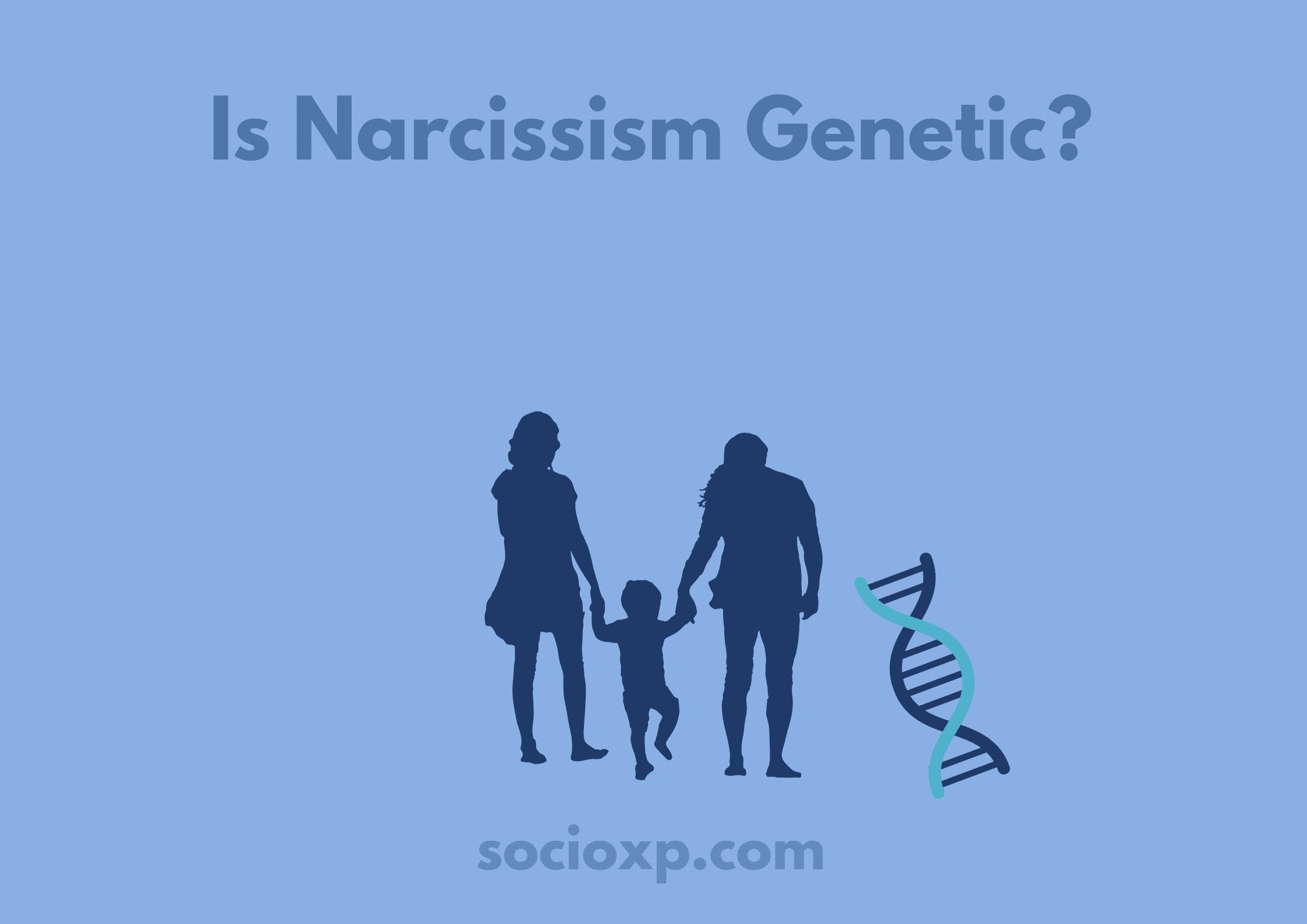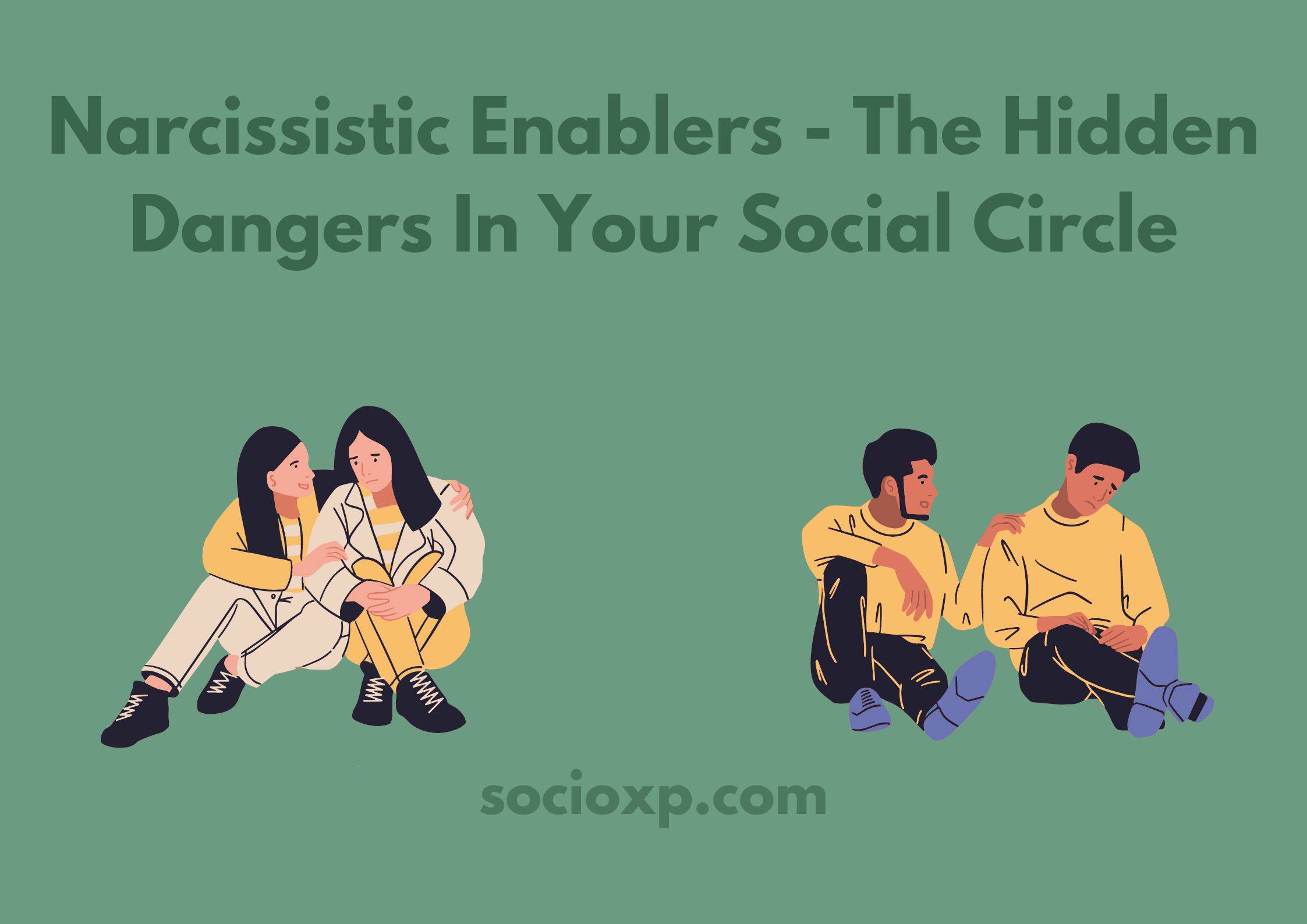Narcissistic Abuse And Anxiety – 11 Symptoms of Narcissistic abuse-induced anxiety
Narcissistic abuse is a fatal form of abuse, that can lead to serious mental and physical health issues. The significant damage or harm caused by narcissistic abuse includes Depression, PTSD (post-traumatic stress disorder), Isolation, Physical health issues, and chronic anxiety. Here the association between narcissistic abuse and anxiety is being discussed.

Narcissistic abuse is a form of psychological and emotional manipulation used by narcissistic individuals to manipulate, control, and exploit others. It can leave a catastrophic impact on the victims of abuse leading to feelings like low self-esteem, self-worth, anxiety, and mental health issues.
What is Narcissistic Abuse?
Narcissistic abuse is a form of psychological and emotional abuse. Narcissists put their victims through emotional turmoil that includes criticisms, accusations, threats, and torture. Narcissists play mind games with their victims by applying all sorts of manipulative tactics that include gaslighting, withholding affection, silent treatments, holding back money and resources, lying, cheating, and more. This completely nasty treatment is termed narcissistic abuse.
Narcissistic abuse is all about controlling their victim’s actions, thoughts, and conduct along with obtaining their narcissistic supply. It is a win-win situation for the narcissist, as they achieve multiple benefits by putting their victims into chronic abusive situations.
The abuse can also be physical, as some narcissists may also resort to physical harm. But the chances of physical harm are slim, narcissistic abuse majorly includes emotional and psychological harm or damage.
The end goal of narcissistic abuse is to establish control, and power and obtain what they desire the most(the narcissistic supply).

Signs of Narcissistic Abuse
There may be different signs of abuse as they may depend upon the type of narcissist you are dealing with, yet here are some generic signs of narcissistic abuse,
- Emotional and Verbal Abuse
- Attempts to isolate you from others
- Constant Criticism and Insults
- Invasion of Privacy
- Arrogant and superior attitude
- Love Bombing
- People Pleasing Behavior
Narcissistic abuse also includes being the victim of manipulative tactics like hoovering, mirroring, gaslighting, hoarding, hogging the chats, ignoring boundaries, exploitation, playing the victim, arrogance, constant competitiveness, lack of empathy, threats, projecting insecurities, and invasion of privacy.
What is Anxiety?
Anxiety is defined as an outcome of negative emotions that can be caused by feelings like worry, uneasiness, nervousness, or being unsure or uncertain about something. Anxiety is a natural form of defense mechanism to stress. A few manifested signs of anxiety include increased heart rate, sweating, getting cold feet and hands, difficulty breathing, sweaty palms, trembling limbs, difficulty concentrating, and feeling nauseous.
Anxiety can be of many forms, and it can range from mild to severe forms. When severe anxiety affects a person, it turns into chronic anxiety and it may also hinder daily activities and can lead to an unhealthy lifestyle with the risk of suffering from a mental health disorder related to an anxious state of mind. The consequences can be serious if anxiety is left untreated at the initial or mid-stage.
If anxiety is left untreated, it can erode all relationships including both personal and professional relationships.
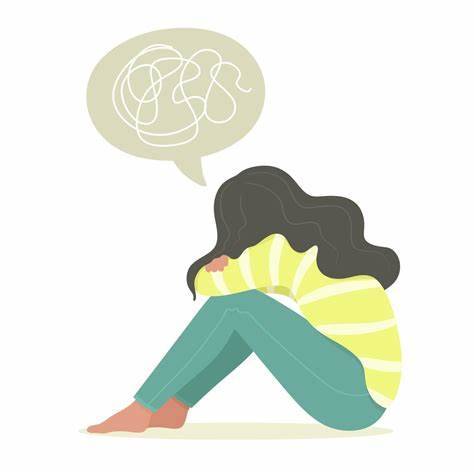
How does Narcissistic Abuse induce Anxiety in victims? – Narcissistic Abuse And Anxiety
Narcissistic abuse can induce a significant amount of anxiety for the victims of abuse and also lead to some lethal consequences due to the varying effects of manipulative tactics that may leave the victim confused and helpless.
The Narcissistic cycle of abuse may have a similar approach to abusive relationships and it may include idealization, love bombing, insulting, devaluing, discarding, hoovering, and reengaging. All such feelings can lead to certainty, fear, and anxiousness for victims.
Various manipulative tactics can lead to extreme damage to victims.
Gaslighting can lead the victims to be confused regarding reality. Gaslighting is a technique that can allow an abuser to create such an atmosphere where the victims question their reality and it forces the victims to doubt their sanity.
Emotional abuse can be traumatic, but the abuse becomes life-threatening when it is physical and sexual abuse. Such abuses can even lead to death as victims may be put in greater danger by their abusers.
An abusive relationship retaliates the feelings of fear, and stress and thus ultimately leads to anxiety. The victim may develop a hyper-vigilant mindset that leads to being attentive and stressed about the next step or next episode of abuse. Over time this attentiveness may turn into chronic stress leading to a decreased sense of trust and increased anxiousness.

11 Symptoms of Narcissistic abuse-induced anxiety
There are a few symptoms of Narcissistic abuse-induced anxiety, and the severity may depend upon the relationship between the victim and the narcissist. Take note here that all these symptoms of narcissistic abuse-led anxiety can vary for different individuals. Here are a few symptoms,
Constant worry – When you are a victim of narcissistic abuse, your relationship with the abuser may be uncertain and the dynamics of this relationship may comprehend the feelings of fear, worries, and distress.
Self-doubt – Narcissists have mastered the art of blameshifting and thus they can make their victims feel guilty and shameful and destroy their self-worth. This can result in self-doubt. Narcissists would erode their victim’s confidence by isolating them, and projecting their insecurities onto them.
Physical Symptoms – Anxiety led by narcissistic abuse can result in excessive sweating, trembling, rapid heartbeat, and digestive issues. When a person is not happy their health might start deteriorating immediately. By being with the narcissist their victims may face many issues related to their digestive system, leading to stomach ulcers, gastronomical disorders, irritable bowel syndrome, and much more.
Social Isolation – Anxiety can lead to withdrawal from social interactions and isolation from friends and family.
Sleep Disturbances – Insomnia and disturbed sleep patterns are some consequences of chronic stress and chronic anxiety.
Emotional Disorders – Emotional disorders include extreme mood swings, heightened volatile emotional reactions, and emotional irregularity. People who suffer narcissistic abuse may realize that their emotions are all over the place. They may be feeling healed and better than ever only to go cry in a corner and be sad for the rest of the day.
Low Self-esteem – An anxious self can be a victim of lower self-esteem and self-confidence. The self-worth deteriorates and people can also gain negative perception.
Hyper-vigilance – An abusive relationship retaliates the feelings of fear, and stress and thus ultimately leads to anxiety. The victim may develop a hyper-vigilant mindset that leads to being attentive and stressed about the next step or next episode of abuse.
Intrusive Thoughts – As a result of anxiety, the victim may suffer intrusive flashbacks and trauma-infused thoughts.
Avoidant Behavior – Suffering through narcissistic abuse, a victim may avoid places, people, and all such associations to avoid or minimize potential triggers.
Trouble in Concentration – Chronic anxiety can lead to impaired cognitive functions and trouble in the decision-making process.
What are the long-term effects of Narcissistic abuse-induced anxiety?
C-PTSD and PTSD both can occur to the victims of Narcissistic abuse but C-PTSD is more likely to occur in victims of Narcissistic abuse as narcissistic abuse is not a single-time event, and it is a series of abuse that occurs in a loop. Narcissists keep on repeating their manipulative cycle of abuse, and the victims either accept it or keep turning a blind eye to those traumatic events.
Eventually, the victims either get completely trapped in the narcissist’s manipulative net or just cease to get into any relationships, as they feel every relationship may get troublesome. The victims either do not understand and identify that they are dating a narcissist and keep on suffering at their hands, or just acknowledge it after a long period when they might have been completely drained and brainwashed.
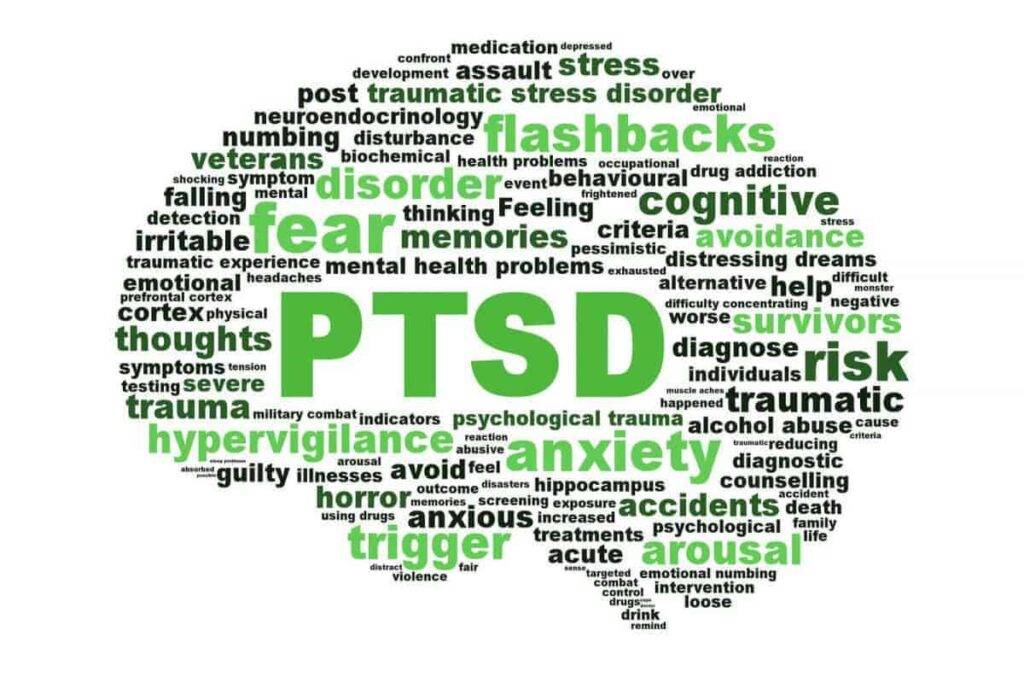
What are some coping strategies for Narcissistic abuse-induced anxiety? – 9 Coping Strategies
Emotional Healing and recovery are crucial after suffering through narcissistic abuse.
The first step to healing from narcissistic abuse-infused anxiety is to understand what is happening. Narcissists’ manipulative tactics may make the victim delusional and keep them confused until they are discarded by the narcissist.
Once the victim realizes the abuse, they may be able to focus on recovery.
Here are some coping and recovery strategies for Narcissistic abuse-induced anxiety,
Seeking Support – Reaching out to trusted friends and family and joining some support groups can help ease the process of healing from narcissistic abuse. When you have supportive people around you, the healing starts at the very moment.
Education – Educating yourself regarding narcissists and narcissistic abuse, can help develop more effective coping strategies.
Seeking Professional Help – Seeking help from mental health experts and gaining guidance in the form of therapy can help curb trauma and negativity from life.
Patience – Prioritizing healing and initiating the healing process requires time and patience. A victim may need time, patience, and space to recover and heal from narcissistic abuse.
Setting boundaries – Establishing clear and strong boundaries can help the victims protect themselves from narcissistic abuse and manipulation.
Self Care – Self-care is the most important step to rejuvenating yourself and leading towards healing accelerating the healing process.
No contact – Going no contact refers to completely going off contact with someone or an off-reach approach with them. It can be done by deleting or blocking them and cutting off all sorts of communication. You may no longer interact with that person in any form. No contact is generally applied with someone you have had close relations with and need to part ways with them for good. Thus no contact can lead to accelerated healing from narcissistic abuse.
Practicing self-compassion – being kind to yourself and understanding the fact that healing requires time, patience and self-love is the first step to coping with narcissistic abuse.
Maintaining a positive mindset – Positive thoughts can lead to everything positive in life and help curb all sorts of trauma.
Why is recovering from narcissistic abuse so challenging?
Facing the aftermath of the emotional trauma can be the most difficult part of recovering from narcissistic abuse.
The narcissistic cycle of Abuse leaves the person experiencing emptiness, deep scars, and a long-lost connection with the world. Narcissists have a very negative impact on their partners and thus their partners find it hard to recognize genuine feelings once they are out of the toxic narcissistic cycle of abuse.
Yes! Breaking up the toxic cycle of abuse by a narcissist can be a cynical and delusional process, but once you gather the strength it is not impossible.
Narcissistic relationships are unique and gripping which makes the freeing process even more difficult. There are a few prominent features that make the leaving process most difficult,
Narcisists have a strong hold over their partners making it a trauma bond. Trauma bonds are quite difficult to leave due to the dependency that they have created for you.
The Guilty feeling brings in all the shame and guilt of leaving the narcissist. Narcissists may not allow you to forget the guilt and thus this guilt drives you back to the toxic relationship.
The absence of help and support may make the leaving process even more strenuous. Thus seek help from family, friends, or therapists.
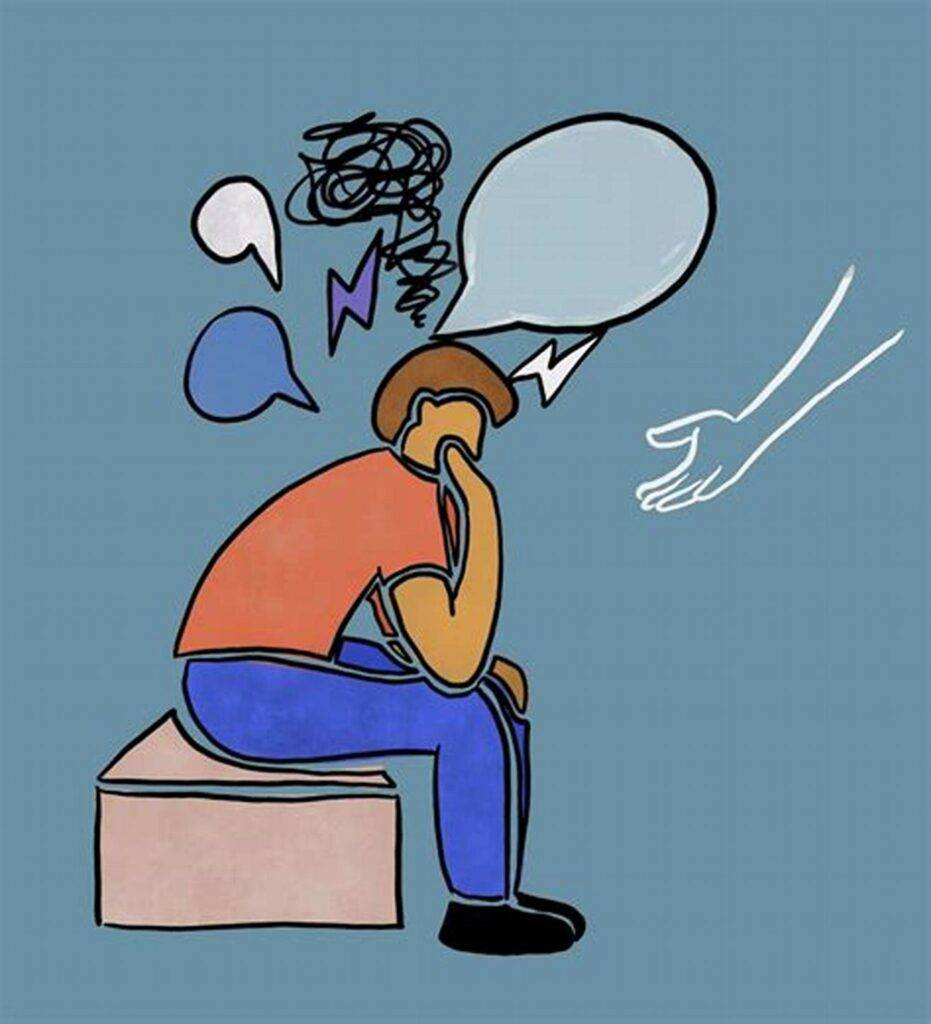
After prolonged exposure to abuse, toxicity manipulation, and control, when you have found yourself out of that toxic atmosphere, sometimes your mind may be even more stressed as nobody is controlling you anymore. You might feel like something is missing as you are now the master of your wishes.
The feeling of emptiness might not leave you for a while and this may give birth to new anxieties which may not be that stressful but the newfound freedom, lack of support, financial struggle, a surge of emotions, worries regarding finding a place and all of that might be giving you separation anxiety. But do not worry my friend and celebrate your newly found freedom as finally you are free from a controlled life.
To cope with your separation anxiety, and bring composure to your life, you may engage in activities like yoga, swimming, joining an art class, listening to music or seeking music therapy, adopting a pet, going hiking, and so on.
Final Thoughts
Narcissistic abuse can induce a significant amount of anxiety for the victims of abuse and also lead to some lethal consequences due to the varying effects of manipulative tactics that may leave the victim confused and helpless.
After prolonged exposure to abuse, toxicity manipulation, and control, when you have found yourself out of that toxic atmosphere, the victims may feel more stressed and suffer through chronic anxiety.
Emotional Healing and recovery are crucial after suffering through narcissistic abuse, but positive guidance can create a difference and accelerate the healing process.
- How To Make A Narcissist Discard You And Leave You Alone? - March 21, 2024
- Narcissistic Supply: 9 Signs You May Be Someone’s Narcissistic Supply - March 11, 2024
- Narcissistic Abuse And Anxiety – 11 Symptoms of Narcissistic abuse-induced anxiety - March 9, 2024
